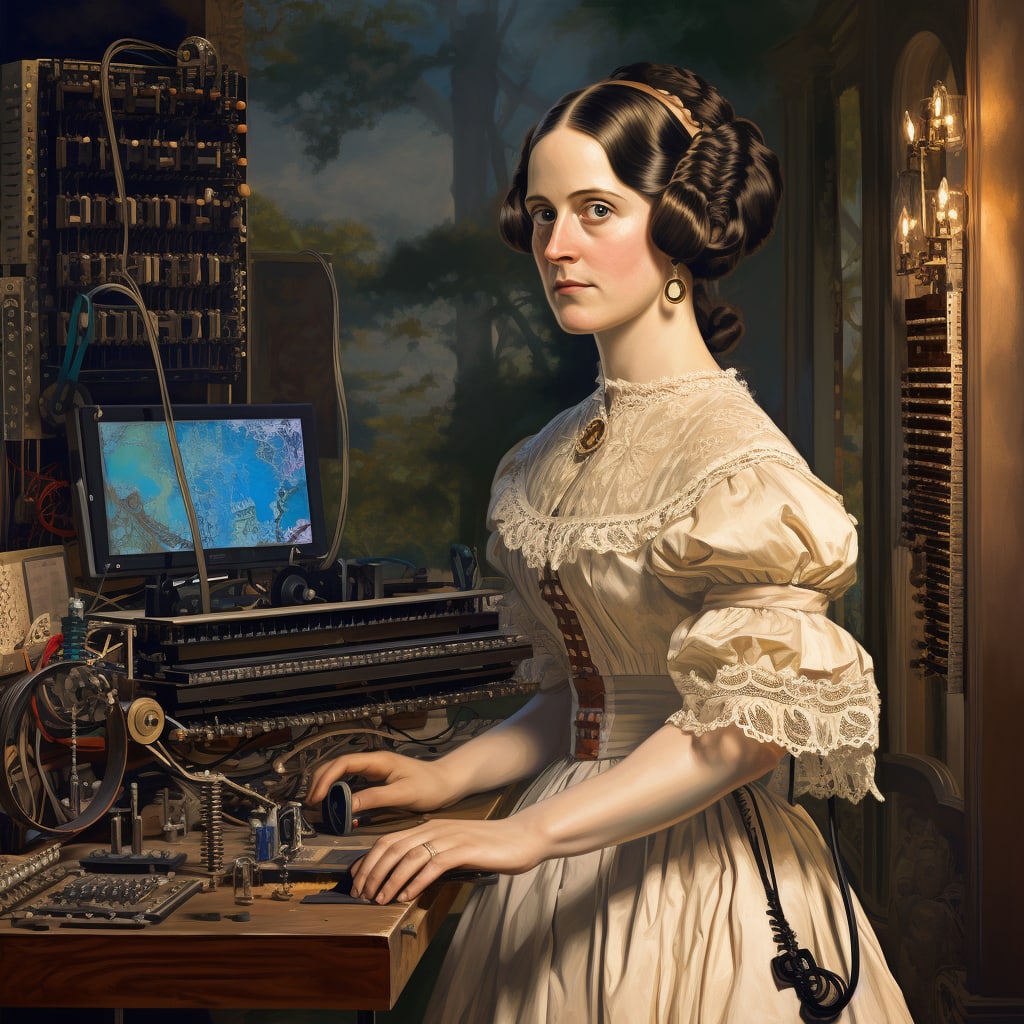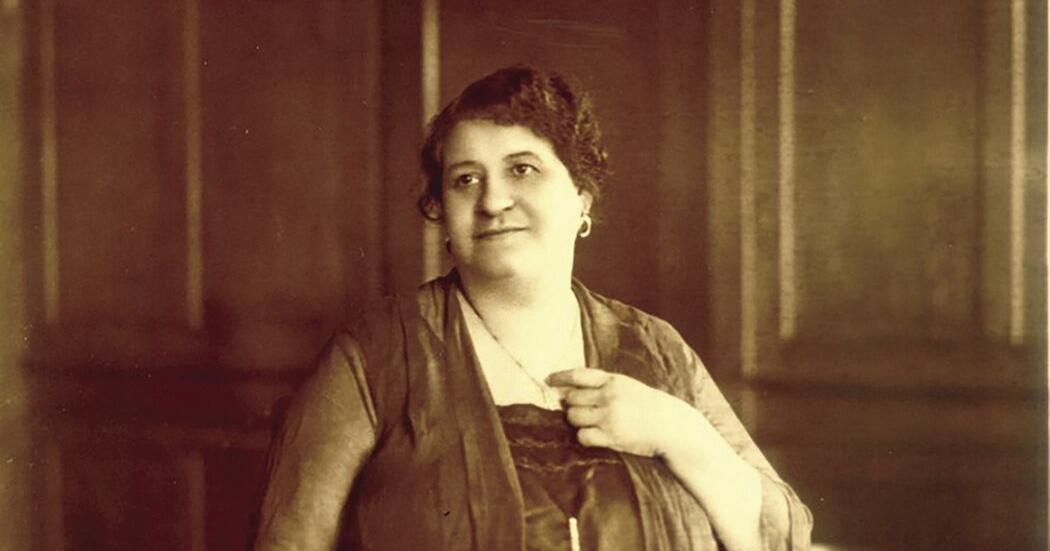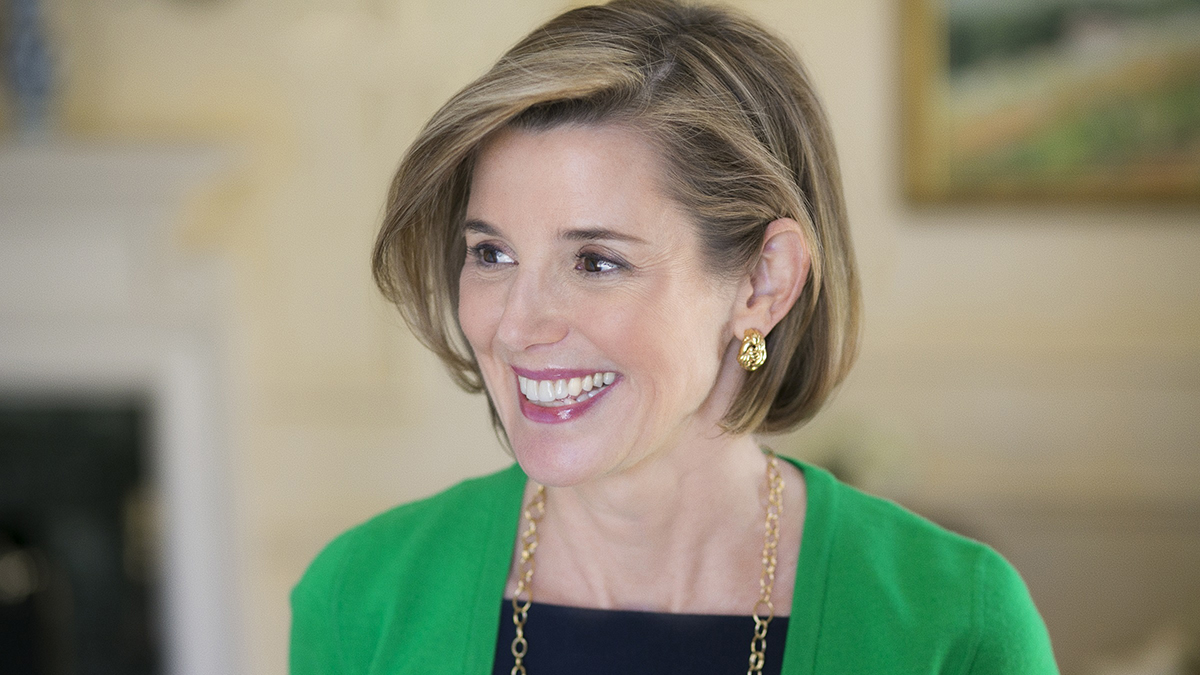- Fintech Is Femme
- Posts
- 🤑 Knock Down Doors
🤑 Knock Down Doors
The narrative of women leading in fintech is not a recent development but a legacy stretching back decades.

Hi, fintech fam! 💜
This year, I worked part-time as a professor at Parsons School of Design.
Last week, I gave my final lecture, where I taught my class about the history of the financial world and analyzed current economic news.
It was not always easy to manage my startup while teaching, and at times, I wasn't sure if I was making an impact on my students.
However, while grading papers last night, a student emailed me.
She shared that before taking my course, she always avoided finance or tech as a career option. Now, after learning about Fintech Is Femme, she is interested in exploring fintech as a place to build and grow her career.
This is why we put ourselves out there.
It's all about the ripple effect.
You never know who you might inspire and what they might go off and accomplish next.
Now, let's explore the pioneering women who created a ripple effect by leading the way in finance and technology.
News with integrity. Join 1440 for FREE.
Escape the bias bubble. Get your facts straight with 1440's daily news digest. Dive into diverse topics without the slant and join a readership of millions.
HISTORY 101
The Women Who Kicked Down Fintech’s Doors

Muriel Siebert, First Lady of Wall Street
Nobody made Muriel “Mickie” Siebert feel welcome on Wall Street. Every door that opened for her was one she kicked down for herself.
Siebert, a trailblazer on Wall Street in the 1960s, faced wage discrimination and decided,
"Screw it, I'll buy my own damn seat at the table."
On December 27, 1967, Siebert became the first woman to own a seat on the New York Stock Exchange.
She was the lone woman amongst 1,375 members. In 1977, she was appointed Superintended of Banks for New York State, the first woman to hold the post.
Fast forward to 2022, and we have Lynn Martin taking the reins as the 68th President of the New York Stock Exchange.

Lynn Martin
Siebert's journey wasn't a solitary leap but the first domino in a chain reaction of female leadership on Wall Street.
From Juanita Kreps in 1972 to Stacey Cunningham in 2018, these women didn't just break through the glass ceiling; they dismantled it.
Their stories echo a common belief: Fortune favors the bold.
You see, the narrative of women leading in fintech is not a recent development but a legacy stretching back decades.
Yet, despite the remarkable contributions of women pioneers in finance and technology, the fintech landscape often seems marred by a scarcity mindset.
The myth persists that there's not enough funding, talent, or women to lead.
Well, let's call it what it is—bullshit.
The women who laid the foundational bricks in finance and technology were anything but your typical finance or tech bros.
Grace Hopper, Margaret Hamilton, Ada Lovelace, and Maggie Walker were the architects of the digital age.
But here's the kicker: their stories are buried beneath a narrative that insists on maintaining the status quo.
We see it in articles today from mainstream media highlighting men as the leaders of the digital finance revolution, ignoring the contributions of women who have been quietly pulling the strings from Wall Street to Silicon Valley.
It's time to rewrite these narratives.
Why?
Because women have been rewriting codes, breaking barriers, and building empires in finance and technology for ages.
Today, we spotlight these brilliant minds and what we can learn from them.
Ada Lovelace: The OG Algorithm Architect

Ada Lovelace
In the 1800s, when women were supposedly confined to corsets and embroidery, Ada Lovelace was busy concocting the first-ever algorithm for Charles Babbage's Analytical Engine.
Her visionary work laid the cornerstone for modern computer programming. That’s right; history’s first computer programmer was a woman.
Takeaway: Never underestimate the power of a woman's mind. Lovelace's intellectual prowess was ahead of her time, proving that innovation knows no gender.
Grace Hopper: The Queen of Code

Grace Hopper
A mathematics Ph.D. and rear admiral in the U.S. Navy, Grace Hopper didn't just invent the first compiler; she laid the foundation for modern programming languages.
Imagine a world where every line of code was a foreign language – that was our reality before Hopper.
Her tenacity to translate complex ideas into machine-readable code birthed COBOL and set the stage for the language of Fintech.
Takeaway: In a sea of complexity, simplicity is your power. Hopper's genius lay in making the complex accessible.
Maggie Lena Walker: Banking on Leadership

Maggie L. Walker
Maggie Walker was an African-American entrepreneur and civic leader who broke traditional gender and discriminatory barriers.
In 1903, she became the first Black woman to charter a bank – the St. Luke Penny Savings Bank and the first African American woman to serve as a bank president.
Walker's financial acumen and leadership paved the way for diverse voices to be heard in the financial sector.
Takeaway: Diversity isn't a buzzword; it's a necessity. Embrace it, champion it, and let it fuel innovation.
Margaret Hamilton: The Galactic Genius

Margaret Hamilton
While men were making "small steps" on the moon, Margaret Hamilton took a giant leap for womankind.
Hamilton was the lead software designer for NASA's Apollo program, and her forward-thinking saved the 1969 Apollo 11 mission when the flight software she designed prevented a last-minute abort of the famous landing that brought the first humans to the Moon.
Her foresight laid the groundwork for the reliability we demand in our financial software today.
Takeaway: Don't just aim for the moon; build the spacecraft. Attention to detail and forward-thinking will set you apart.

Three women who played a vital role in advancing NASA's missions.
As seen in the movie Hidden Figures, these African-American women were human computers who played a vital role in 1962 when they helped send the first American astronaut, John Glenn, into orbit.
Takeaway: Be bold brave, and break down the doors in your way.
The lessons from these women can be summarized as:
Embrace Mentorship: Seek mentors who inspire and challenge your thinking.
Never Stop Learning: Fintech is a constantly evolving field. Stay curious, keep learning, and be adaptable.
Diversity Is Key: Diversity isn't just a checkbox—it's a catalyst for innovation and profitability—champion diversity and inclusion in your workplace.
Fearlessness Pays Off: Whether breaking the glass ceiling or starting your venture, channel your inner Ada Lovelace. Fearlessness in the face of adversity is a hallmark of successful pioneers.
These historical women’s contributions have laid the groundwork for women leading in fintech today, like:
Sallie Krawcheck - The Fearless Investor

Sallie Krawcheck
Sallie Krawcheck, the CEO and co-founder of Ellevest, is rewriting the narrative on women and investing.
With Ellevest, she's not just managing money; she's working to smash stereotypes.
Krawcheck recognized women's unique financial needs and challenges and decided to do something about it.
Her crucial lesson? Don't just lean in; build a whole new table.
Takeaway: Know your audience and cater to their specific needs. There's power in creating solutions that resonate with diverse individuals.
Adena Friedman - The Data Dynamo

Adena Friedman
As the President and CEO of Nasdaq, Adena Friedman has played a pivotal role in transforming the stock exchange into a tech powerhouse.
She's been a driving force behind embracing cutting-edge technologies, including blockchain, to revolutionize financial markets.
Friedman's journey teaches us that embracing change is necessary and a catalyst for growth.
Takeaway: Embrace technology. Stay ahead by understanding how emerging technologies can reshape the fintech landscape.
Thasunda Brown Duckett - The Fortune 500 CEO

Thasunda Brown Duckett
For Black women in America, it is lonely at the top, with only four Black women CEOs to ever reign at a Fortune 500 company.
A huge milestone happened in May 2021 for Black women and the financial services industry when Thasunda Brown Duckett made history as the fourth to join the ranks as she stepped into her role as President & CEO of TIAA.
Takeaway: persistence, excellence, and breaking through barriers are essential. The path may be challenging, but the impact is profound.
Jennifer Hyman - The Disruptive Entrepreneur

Jennifer Hyman
Jennifer Hyman, co-founder and CEO of Rent the Runway, disrupted the traditional retail and fashion industry by introducing a rental model.
While not a conventional fintech player, Hyman's story demonstrates innovation's power and challenges the status quo.
Fintech isn't just about numbers; it's about reshaping entire industries.
Takeaway: Embrace disruption. Look for opportunities to challenge the norm and bring fresh perspectives.
Karen Mills - The Small Business Advocate
President Barack Obama & Karen Mills
Karen Mills, former head of the Small Business Administration, has tirelessly advocated for small businesses.
Recognizing the importance of small enterprises in the economic ecosystem, Mills worked to increase access to capital and resources.
Her journey reminds us that fintech isn't just about big banking; it's also about empowering the more minor players.
Takeaway: Think beyond the big players. Fintech solutions can profoundly impact small businesses, opening up new avenues for growth.
These inspiring women are not just figures of admiration but the architects of a new era.
Our responsibility is to ensure that their stories are not isolated incidents but part of an ongoing narrative that inspires the next generation.
By being part of Fintech Is Femme, you actively create more cycles of female leaders in fintech.
Keep coding, keep disrupting, and most importantly, keep leading.
And if you’re fired up and ready to learn more, check out my podcast on YouTube, where I interview over 200 women and diverse leaders in fintech, all dismantling the patriarchy together.
WTF ELSE?
I WANT IT, I GOT IT
📚 Today’s Read: This article from Fast Company called Why millennial women embrace angel investing. The TL;DR? Women are jumping in on creating new cycles of wealth and building businesses where we support one another. “We need to see more people who look like us at the front of the room. When we do, there’s a positive snowball effect.”
👀 Today’s Watch: In the spirit of the holidays, I’m doing my fair share of catching up on classic Christmas movies like Home Alone. But recently, I stumbled upon Spirited. This is a funny version of Charles Dickens' story about a grumpy Scrooge who gets visited by four ghosts on Christmas Eve. It features Will Ferrell, Ryan Reynolds, and Octavia Spencer. And there are some excellent musical numbers with fantastic choreography.
🍣 Today’s Eats: I had a cozy and delicious dinner at Birds of a Feather in Williamsburg. It’s my go-to spot in BK for bringing a friend for a catch-up dinner. The food is delicious (and spicy!), and the vibes are immaculate.
FINTUNES
I love NPR Music's Tiny Desk concerts! They're a great way to discover new artists and enjoy outstanding performances. I was excited to see Olivia Rodrigo's second appearance at the tiny desk this week. Her songs "Lacy" and "Making the Bed" from the GUTS album are exceptional. The lyrics are introspective and complex. "Lacy" captures the struggle of envy, while "Making the Bed" explores accepting the consequences of achieving your desires. Trust me, watching her perform live is an experience you don't want to miss!

That’s all for now! Stay safe, everyone. Hug your loved ones. See you Thursday!
Love,
Nicole
